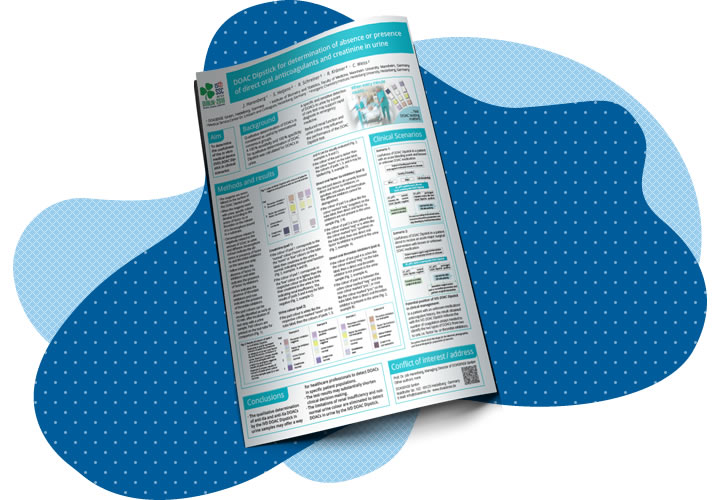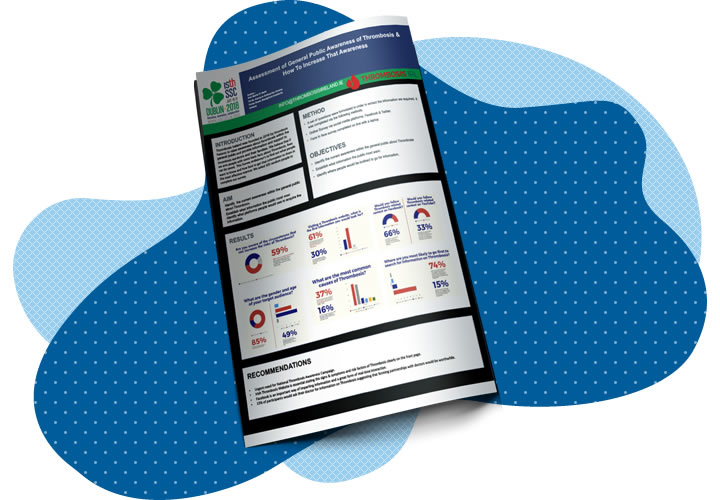Research News

Imperial College London are setting up a research study to improve diagnosis and care of patients with deep vein thrombosis (DVT). They would like to ask the opinion of VTE patients on the research study. This should take no longer than 5 minutes. The questions ask how you feel about the study, whether you think it is worthwhile, and whether you would consider participating in such a trial. By participating in this questionnaire, you will be helping to develop the study in a way that is truly meaningful to patients.
Take Questionnaire
Binge-watching TV for 4 hours or more per day is linked with a 35% higher risk of blood clots.
New meta-analysis study from Bristol Medical School which included 130,000+ participants.
Read the Article
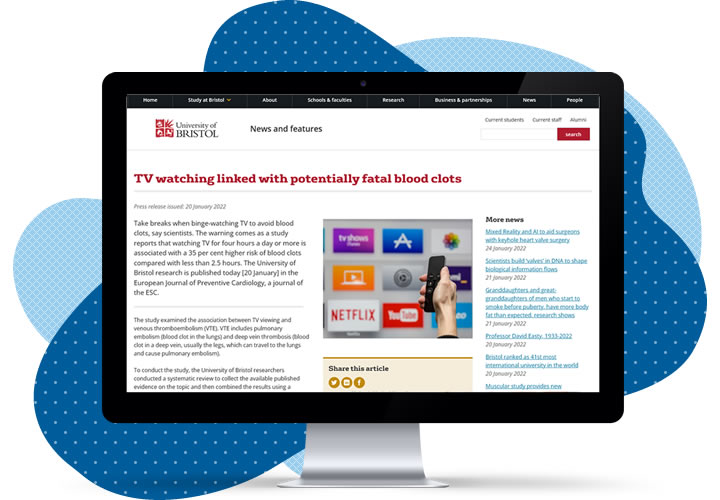
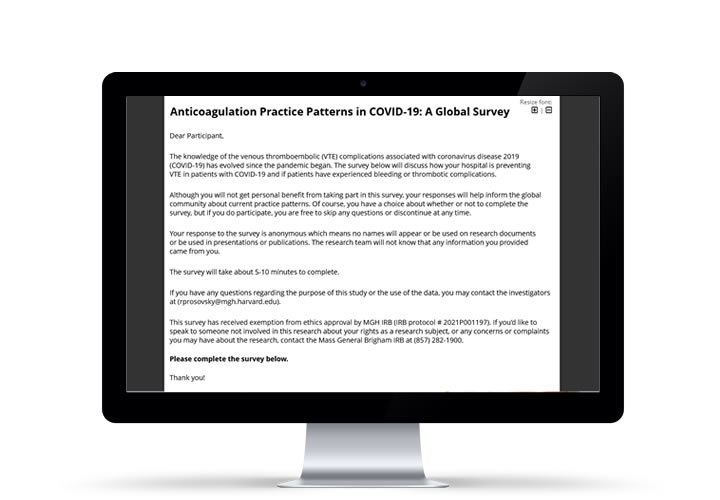
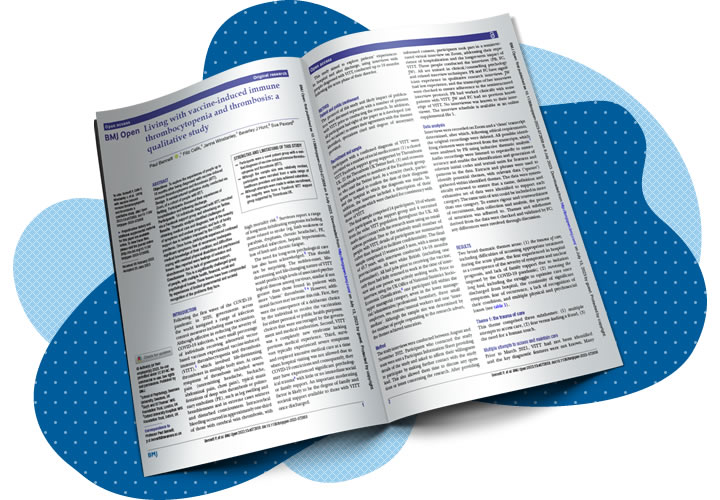
Living with vaccine-induced immune thrombocytopenia and thrombosis: a qualitative study
Published July 13th 2023
Objectives To explore the experiences of people up to 18 months after being diagnosed with vaccine-induced immune thrombocytopenia and thrombosis (VITT).
Read Article
UK experience of Vaccine-Induced Immune Thrombocytopenia & Thrombosis (VITT) of first 220 cases
Published August 11th 2021
Vaccine-induced immune thrombocytopenia and thrombosis (VITT) is a new syndrome associated with the ChAdOx1 nCoV-19 adenoviral vector vaccine against severe acute respiratory syndrome coronavirus 2. Data are lacking on the clinical features of and the prognostic criteria for this disorder.
Read Article
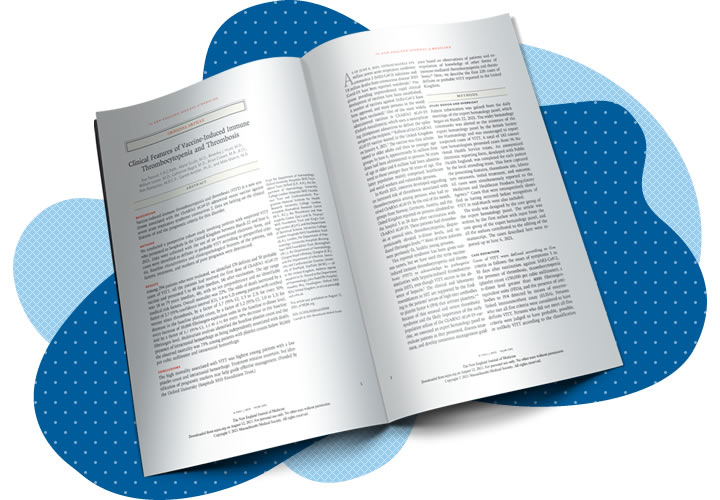
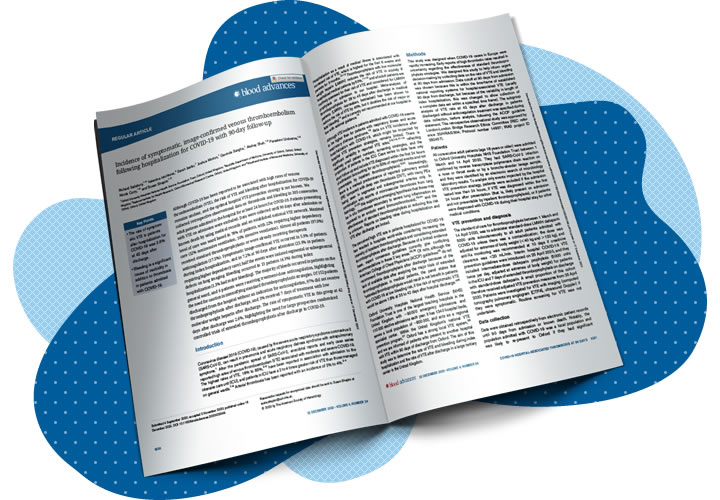
Incidence of symptomatic, image-confirmed venous thromboembolism following hospitalization for COVID-19 with 90-day follow-up
Richard Salisbury, Valentina Iotchkova, Sarah Jaafar, Joshua Morton, Gavinda Sangha, Akshay Shah, Paraskevi Untiveros, Nicola Curry, Susan Shapiro, December 2020
Read the Article
COVID-19 confessions: a qualitative exploration of healthcare workers experiences of working with COVID-19
Paul Bennett, S Noble, Stephen Johnston, David Jones, Rachael Hunter, December 2020
Read the Article
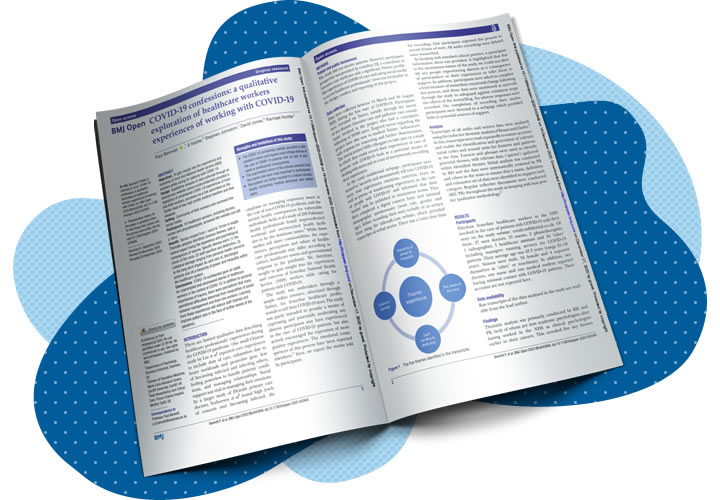
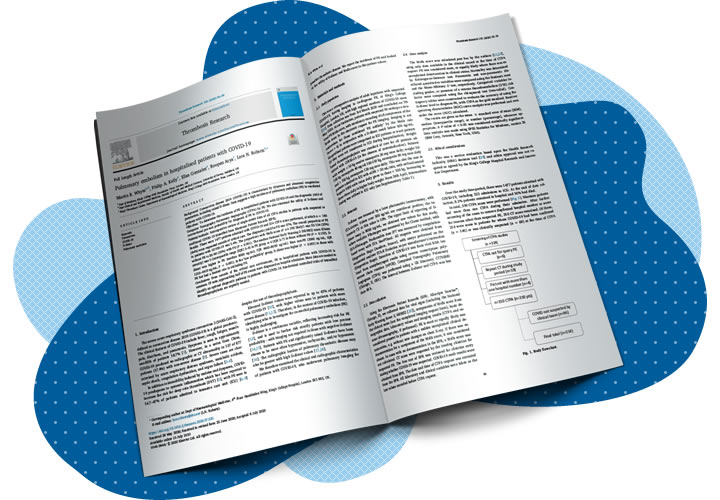
Pulmonary embolism in hospitalised patients with COVID-19
Martin B. Whyte, Philip A. Kelly, Elisa Gonzalez, Roopen Arya, Lara N. Roberts, June 2020
Read the Article
Hypercoagulability and Anticoagulation in Patients With COVID-19 Requiring Renal Replacement Therapy
Lara N. Roberts, Kate Bramham, Claire C. Sharpe and Roopen Arya, June 2020
Read the Article
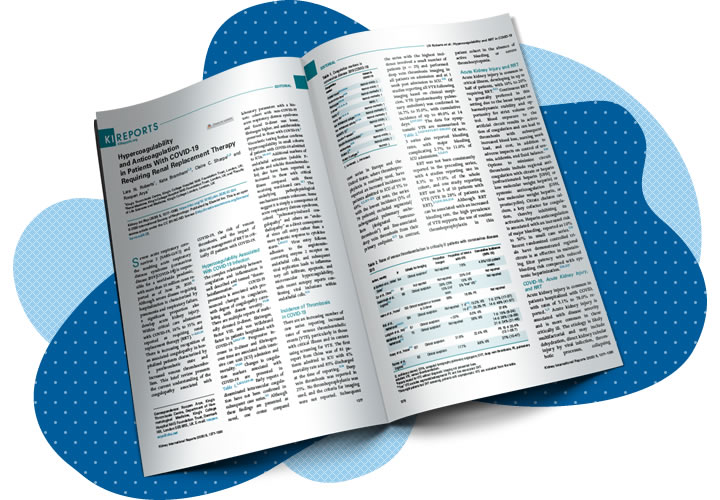
Imperial College London are looking for Principle Investigators and secondary care sites to recruit to the NIHR-HTA funded CHAPS study
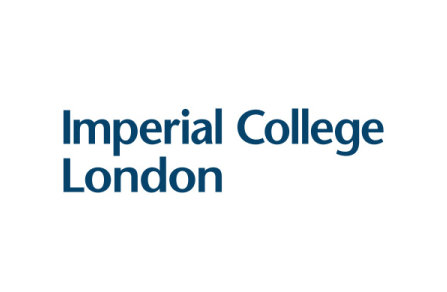
Imperial College London are currently conducting the CHAPS study, an NIHR-HTA funded RCT investigating the role of compression hosiery for the prevention of post-thrombotic syndrome in patients who have been diagnosed with their first DVT. Participants will be randomised to either anticoagulation alone or anticoagulation in addition to compression stockings. This definitive trial will provide robust evidence regarding the effectiveness of compression stockings in the prevention of post-thrombotic syndrome (PTS).
The team, led by Professor Alun Davies, are now looking for secondary care sites to recruit to this NIHR portfolio study. Owing to the impact of COVID-19, the team fully understand that potential sites may not be able to proceed with set-up until the latter part of 2021 and are happy to commence discussions in the meantime. This study is also registered for the NIHR Associate PI scheme.
For more information and to find out how you can be part of this important collaboration, please contact Sarrah Peerbux (Trial Manager) at s.peerbux@imperial.ac.uk or chapstrial@imperial.ac.uk.
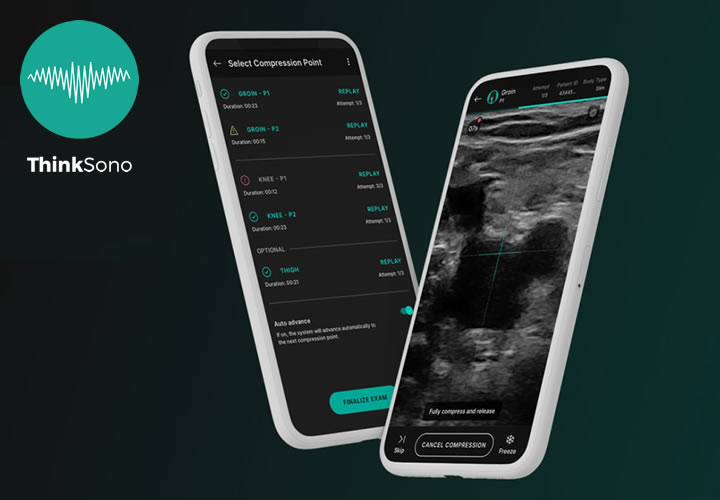
Oxford University Hospital, the Wellcome Trust and ThinkSono have formed a collaboration to enable non-radiology staff (e.g hematologists, students, nurses, junior doctors and emergency doctors etc) to detect proximal DVT at the point of care.
An AI based software will be trialled that uses a small handheld ultrasound device which provides full guidance to the user.
If you are interested in this project, please register on the website www.thinksono.com or email hello@thinksono.com directly.
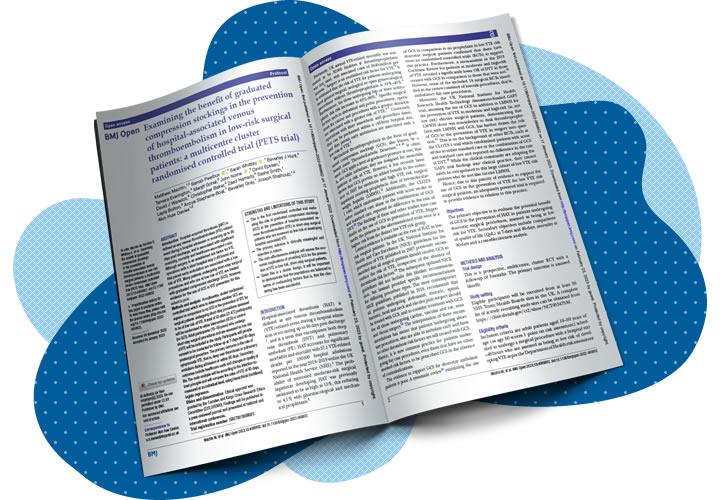
Examining the benefit of graduated compression stockings in the prevention of hospital-associated venous thromboembolism in low-risk surgical patients: a multicentre cluster randomised controlled trial (PETS trial) published in BMJ Open
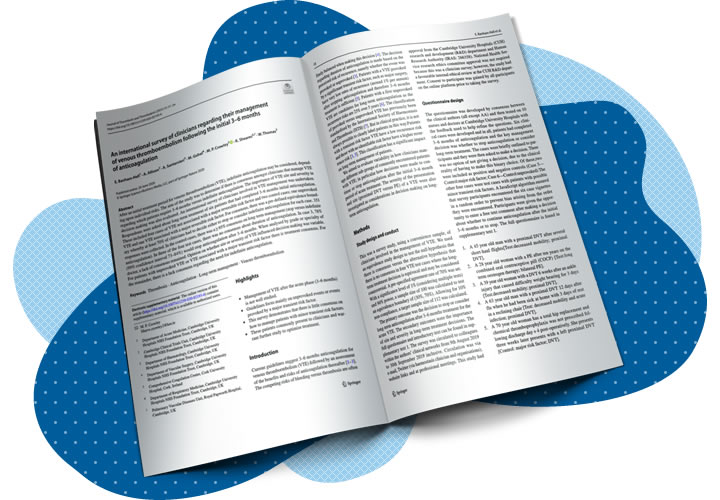
2020: Research in VTE Management
An international survey of clinicians regarding their management
of venous thromboembolism following the initial 3–6 months
of anticoagulation
E. Banham Hall1 · A. Allison2 · A. Santarsieri3 · M. Gohel4 · M. P. Crowley5 · K. Sheares6,7 · W. Thomas3

Thrombin generation, thrombin-antithrombin complex, and prothrombin fragment F1+2 as biomarkers for hypercoagulability in cancer patients
Mikkel Lundbech, Andreas Engel Krag, Thomas Decker Christensen, cAnne-Mette Hvas
Full report, summary and implementation tools can be found at:
https://www.sciencedirect.com/science/article/abs/pii/S0049384819305511
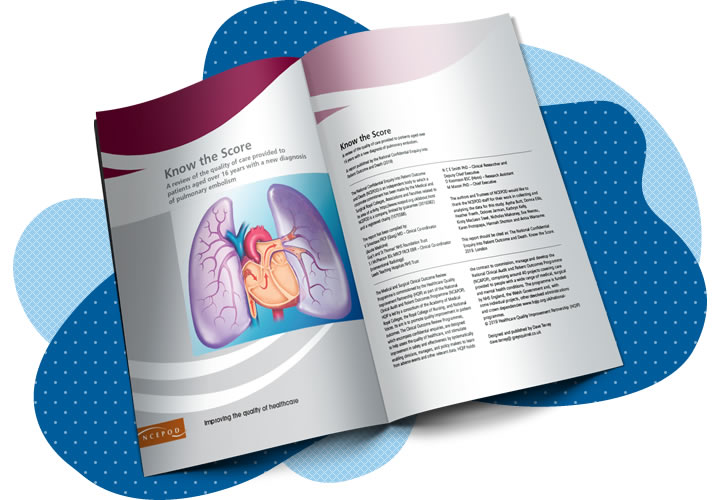
The NCEPOD Report
Highlighting the quality of care of patients aged 16yrs+ who had a PE, who either presented to hospital or who developed a PE whilst an inpatient for another condition.
Full report, summary and implementation tools can be found at:
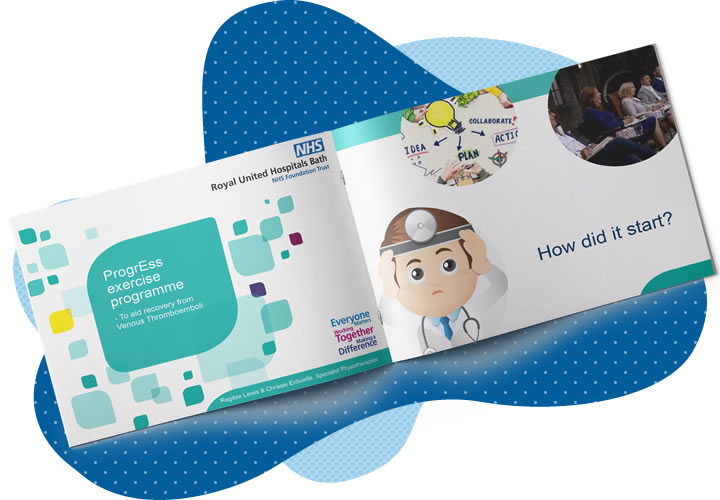
ProgrEss exercise programme - To aid recovery from Venous Thromboembloi
Regitse Lewis & Chrissie Entwistle, Specialist Physiotherapists
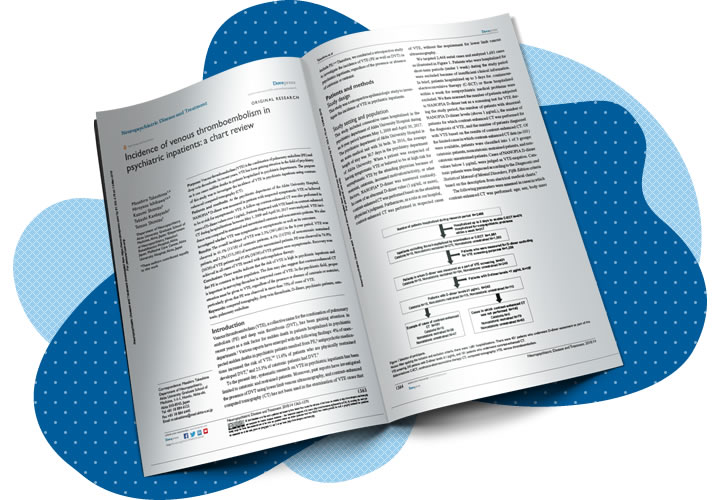
Incidence of venous thromboembolism in psychiatric inpatients: a chart review
Masahiro Takeshima, Hiroyasu Ishikawa, Kazumi Shimizu, Takashi Kanbayashi, Tetsuo Shimizu
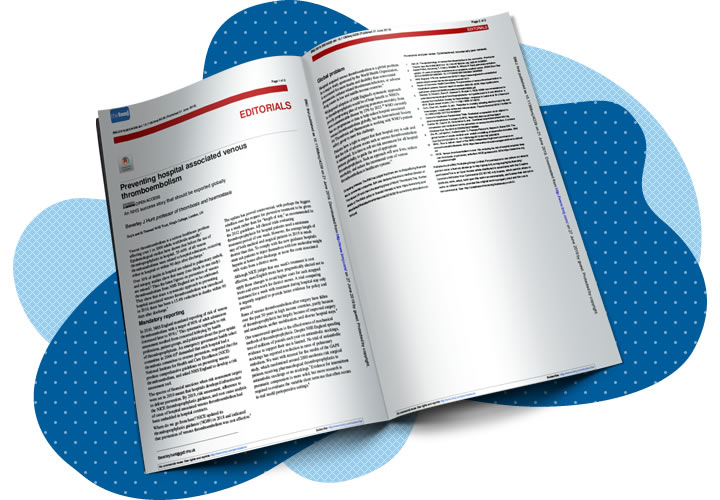
BMJ: An NHS success story that should be exported globally
Prof Beverley Hunt OBE
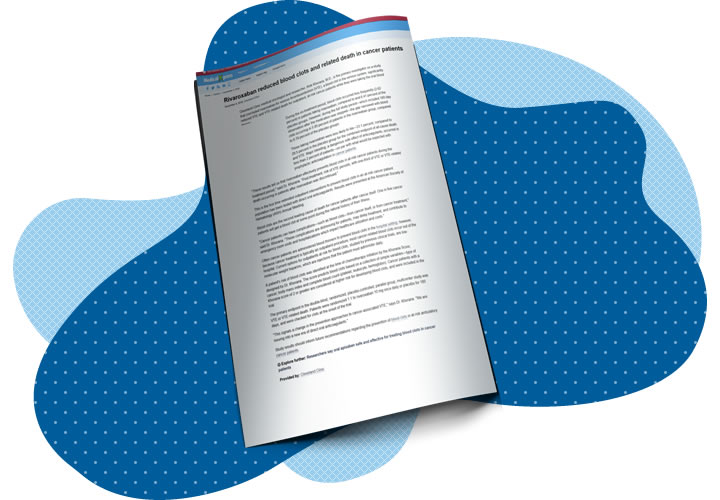
Cleveland USA, study concludes rivaroxaban for VTE significantly reduced VTE and VTE-related death for outpatient, at-risk cancer patients while they were taking the oral blood thinner.
Cleveland Clinic
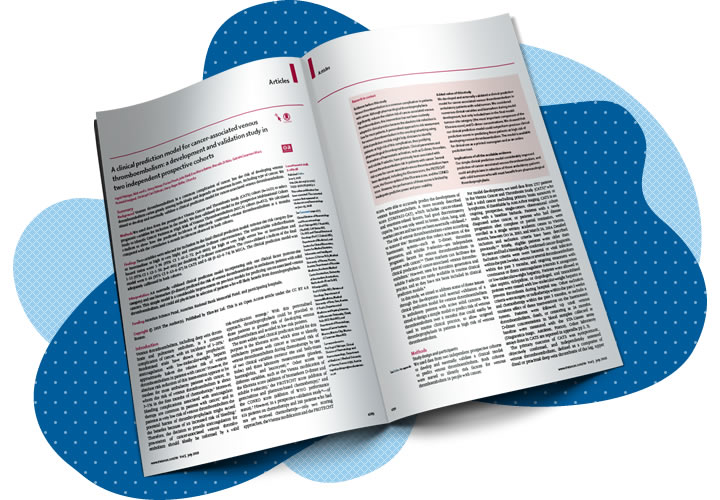
A clinical prediction model for cancer-associated venous thromboembolism: a development and validation study in two independent prospective cohorts
Ingrid Pabinger, Nick van Es, Georg Heinze, Florian Posch, Julia Riedl, Eva-Maria Reitter, Marcello Di Nisio, Gabriela Cesarman-Maus, Noémie Kraaijpoel, Christoph Carl Zielinski, Harry Roger Büller, Cihan Ay
The Lancet July 2018
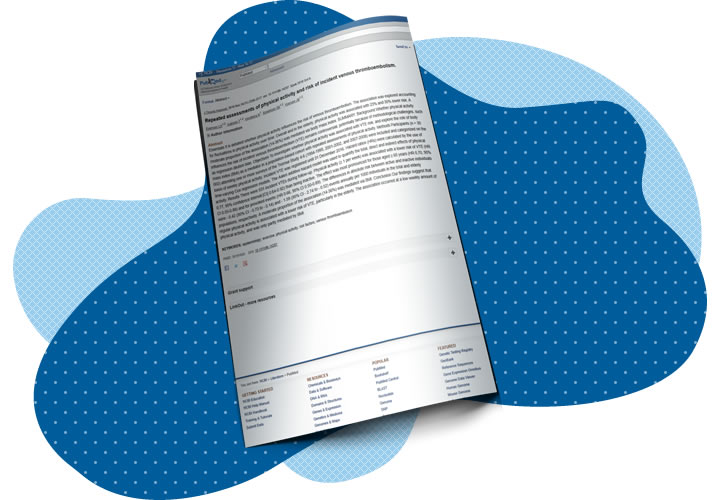
Repeated assessments of physical activity and risk of incident venous thromboembolism
Evensen LH, Isaksen T, Hindberg K, Braekkan SK, Hansen JB
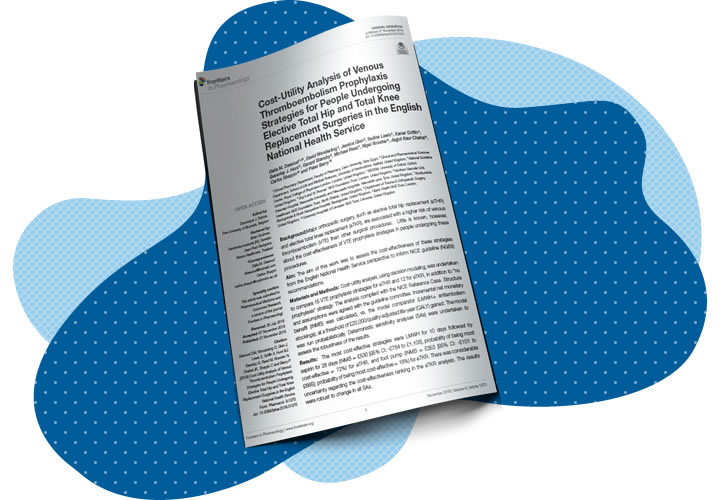
Cost-Utility Analysis of Venous Thromboembolism Prophylaxis Strategies for People Undergoing Elective Total Hip and Total Knee Replacement Surgeries in the English National Health Service
Dalia M. Dawoud, David Wonderling, Jessica Glen, Sedina Lewis Xavier Griffin, Beverley J. Hunt, Gerard Stansby, Michael Reed, Nigel Rossiter, Jagjot Kaur Chahal, Carlos Sharpin and Peter Barry
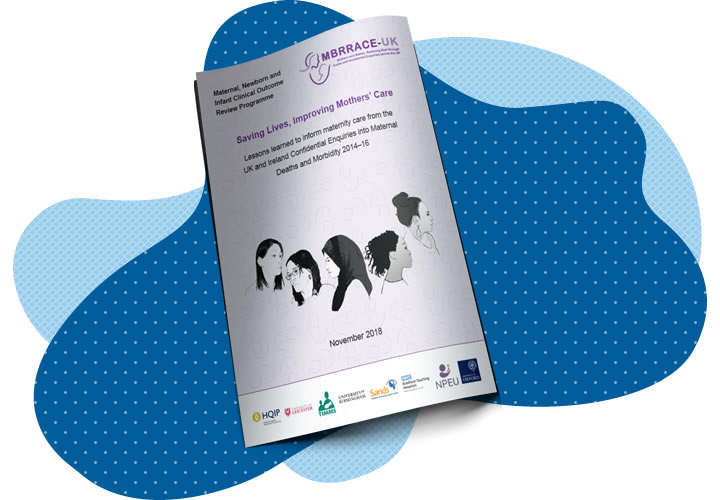
MBRRACE-UK release “Saving Lives, Improving Mothers’ Care”
Marian Knight, Kathryn Bunch, Derek Tuffnell, Hemali Jayakody, Judy Shakespeare, Rohit Kotnis, Sara Kenyon, Jennifer J Kurinczuk (Eds.)
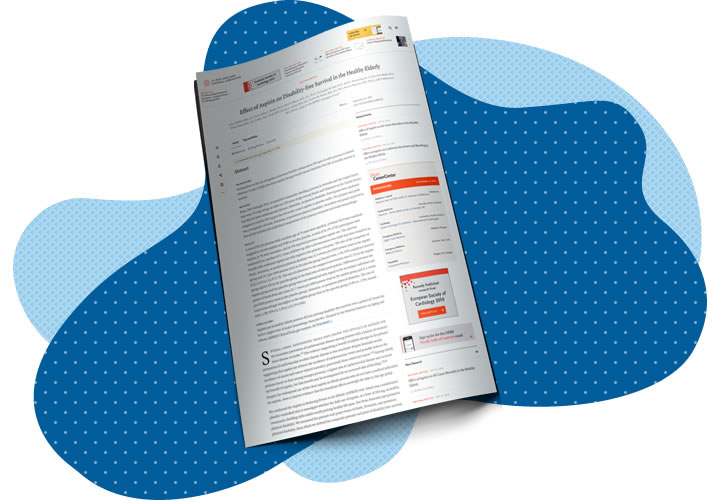
New study confirms healthy people aged 70yrs+ should not routinely take aspirin. Evidence shows it does not improve health and does increase risk of a major bleeds
Elderly people in good health should not take an aspirin a day, according to a major study in the US and Australia.
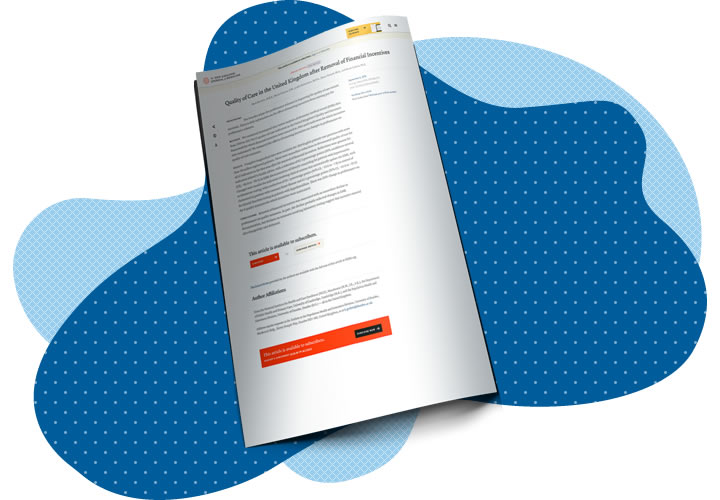
Quality of Care in the United Kingdom after Removal of Financial Incentives
Mark Minchin, M.B.A., Martin Roland, D.M., Judith Richardson, M.P.H., Shaun Rowark, M.Sc., and Bruce Guthrie, Ph.D.

Exemplar report ‘Accelerating Artificial Intelligence in health and care: results from a state of the nation survey’ published
Melissa Ream, Adviser, Kent Surrey Sussex AHSN and AHSN Network AI Initiative, Tina Woods, Founder & CEO, Collider Health; Adviser to AHSN Network AI Initiative, Indra Joshi, Digital Health and AI Clinical Lead, NHS England, Laura Day, Analyst, KSS AHSN
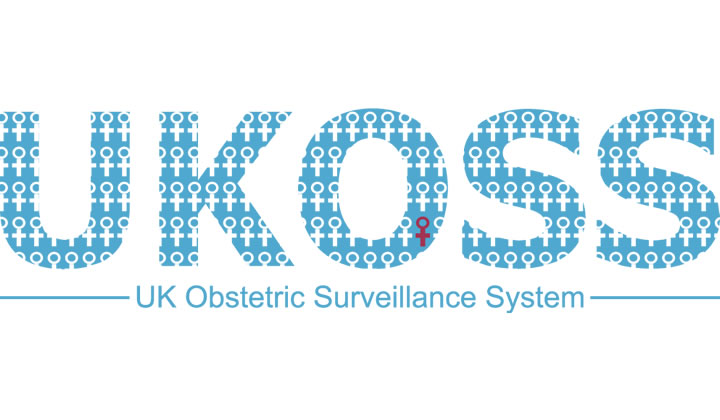
UKOSS: A national system to study rare disorders of pregnancy
Objective
To develop a UK-wide Obstetric Surveillance System to describe the epidemiology of a variety of uncommon disorders of pregnancy. This important National Study is being run through UKOSS (UK Obstetric Surveillance System) into the management of pregnant women with either antithrombin deficiency or heterozygous protein C deficiency.
The background and key points are summarised below or via the following link https://www.npeu.ox.ac.uk/ukos... Please contact your local UKOSS rep if you have any cases that could be included in this Study. It is only running for one year and with your help we hope to be able to collect enough data to make a significant contribution to the guidance on how best to manage this difficult cohort of patients.
According to findings from the phase 3 EINSTEIN-Jr study, treatment with rivaroxaban resulted in similar rates of recurrent venous thromboembolism (VTE) and bleeding when compared with standard anticoagulation among pediatric patients with previously diagnosed acute VTE who had started heparin therapy.
In the trial, children aged from birth to 17 years were randomized to receive either a body weight-adjusted dose of rivaroxaban (n=335) or standard of care therapy (low molecular weight heparin or fondaparinux, and/or vitamin K antagonist therapy; n=165).
Results of the study showed that the rate of symptomatic recurrent VTE – the primary end point – was similar in both treatment groups with 1.2% of patients experiencing a recurrent event in the rivaroxaban group compared with 3.0% in the standard anticoagulation group (hazard ratio [HR] 0.40; 95% CI, 0.11 to 1.41).
Findings also showed that 3.0% of the rivaroxaban group and 1.9% of the standard anticoagulation group experienced clinically relevant bleeding (HR 1.58; 95% CI, 0.51 to 6.27), which was the principal safety outcome of the trial.
“This trial examined for the first time whether a direct oral anticoagulant could alleviate the burden of blood clots in young patients, which would allow them to focus on recovering from their other health challenges,” said Christoph Male, MD, Department of Pediatrics, Medical University of Vienna, Vienna, Austria. “The EINSTEIN-Jr study with rivaroxaban represents a significant advance for pediatric VTE treatment.”
Currently, there is no direct oral anticoagulant approved for use in pediatric patients. The EINSTEIN-Jr study is 1 of 5 trials examining rivaroxaban use in pediatric patients. Another key study, UNIVERSE, is evaluating the safety and efficacy of rivaroxaban for thromboprophylaxis in children 2 to 8 years old after the Fontan procedure.
For more information visit janssen.com.
As part of Thrombosis UK's commitment in raising Awareness, Research and Care of Thrombosis. Our own Annya Stephens-Boal was part of the the research committee for the following new study.
Oral anticoagulants for primary prevention, treatment and secondary prevention of venous thromboembolic disease, and for prevention of stroke in atrial fibrillation: systematic review, network meta-analysis and cost-effectiveness analysis
The study found that the use of novel oral anticoagulants has advantages over warfarin in patients with atrial fibrillation, but there was no strong evidence that they should replace warfarin or low-molecular-weight heparin in the primary prevention, treatment or secondary prevention of venous thromboembolic disease.
or visit: https://www.journalslibrary.nihr.ac.uk/hta/hta21090/#/abstract
Quality Watch: Emergency readmissions to hospital for potentially preventable conditions on the rise, new research shows
The number of patients being readmitted to hospital in an emergency with potentially preventable conditions such as pneumonia and pressure sores has grown significantly in the last seven years, analysis from The Nuffield Trust think tank shows today.
The new findings from QualityWatch, a major research programme from the Nuffield Trust and the Health Foundation, looked at hospital data detailing patient diagnoses and the reasons behind emergency hospital readmissions between 2010/11 and 2016/17. The analysis aims to highlight where improved quality of care in hospital or the community might have prevented readmission.
The analysis tracks a 19% rise in patients being readmitted to hospital in an emergency within 30 days of discharge between 2010/11 and 2016/17. Within this, the author identifies a 41.3% rise in emergency readmissions for conditions they classify as “potentially preventable”. These “potentially preventable” readmissions include patients with pneumonia, pressure sores and venous thromboembolism (VTE) and were conditions that patients were not diagnosed with when they were first admitted to hospital.
According to the author, these findings should raise questions about the quality of care that our elderly population are receiving during their hospital stay, how they are discharged from hospital and the quality of community and social care services.
Key findings:
- Between 2010/11 and 2016/17, the number of emergency readmissions within 30 days increased from 1,157,570 to 1,379,790, a rise of 19.2%. The proportion of patient hospital stays that were followed by a readmission grew from 7.5% to 8%.
- Potentially preventable emergency readmissions to hospital grew from 130,760 to 184,763 - an increase of 41.3%. This means that the proportion of patient hospital stays that were followed by these types of readmission grew from 0.8% in 2010/11 to 1.1% in 2016/17.
- Patients readmitted to hospital in an emergency with pneumonia increased from 41,003 in 2010/11 to 70,731 in 2016/17, an increase of 72.5%. The increase in pneumonia readmissions was greater than the overall increase in pneumonia cases.
- Emergency readmissions for pressure sores almost trebled from 7,787 in 2010/11 to 22,448 in 2016/17. The increase in the number of patients being readmitted with a pressure sore superseded the overall increase in the number of pressure sore diagnoses in hospital.
- The number of patients readmitted with venous thromboembolism grew by a third, from 16,890 in 2010/11 to 23,006 in 2016/17.
While the findings may point towards changes in coding practices of conditions in hospital, as well as a rapidly growing frailer and older population, the findings show there is a good opportunity for local health providers and policy makers to target their quality improvement efforts.
Director of Research at the Nuffield Trust, Professor John Appleby said:
“Unnecessary trips and overnight stays in hospital put a strain on elderly patients and their families. That is why it’s concerning that our research shows the number of people being readmitted to hospital within 30 days with potentially preventable conditions is greater than it was seven years ago.”
Briefing author Jessica Morris, Research Analyst at the Nuffield Trust said:
“Emergency readmissions to hospital, for conditions that were not diagnosed during their first visit, are potentially a warning sign that a patient’s quality of care may have been compromised.
“The findings provide local health providers with a good opportunity to sit up and focus their attention and quality improvement initiatives on the three conditions where we’ve seen the most significant rise in readmissions.”
- Publicly available data on emergency readmissions has not been available since December 2013, as NHS Digital have delayed indicator updates pending a methodology review.
- Emergency readmissions: Trends in emergency readmissions to hospital in England examines trends in emergency readmissions for all acute hospital trusts in England using Hospital Episode Statistics (HES) data. Written by Nuffield Trust research analyst Jessica Morris, the analysis will be published on the QualityWatch website at 0001 Friday 1st June.
- QualityWatch is a joint programme by the Nuffield Trust and Health Foundation providing independent scrutiny of health and social care quality data. The programme monitors over 300 care quality indicators, which are published on the QualityWatch website. It also publishes research reports, news and blogs about care quality and data. www.qualitywatch.org.uk
- The Nuffield Trust is an independent health think tank. We aim to improve the quality of health care in the UK by providing evidence-based research and policy analysis and informing and generating debate.
- The Health Foundation is an independent charity committed to bringing about better health and health care for people in the UK. Our aim is a healthier population, supported by high quality health care.
For more information please contact:
Kirsty Ridyard on 0207 462 0552 / Kirsty.ridyard@nuffieldtrust.org.uk
Leonora Merry on 0207 462 0555 / Leonora.merry@nuffieldtrust.org.uk
The Nuffield Trust has an in house ISDN line for radio interviews.
Thrombosis UK offer up Travel Fellowship grants to a maximum value of £1,000.
Read more about the work undertaken as a result of Thrombosis UK Travel Fellowship grant support:
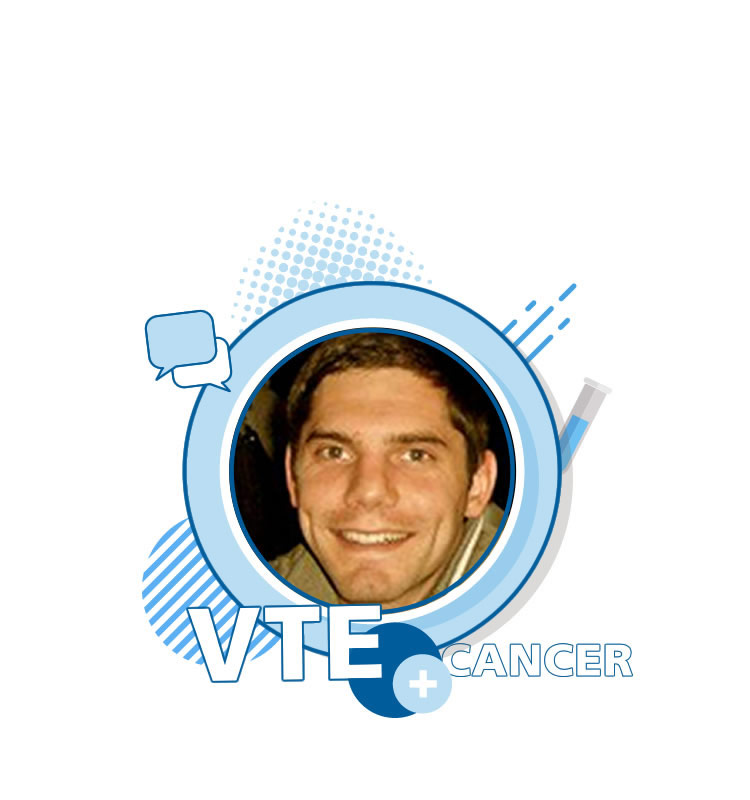
Dr Colin Evans
Dr Colin Evans is a Postdoctoral Research Associate in the laboratory of Professor Randall Johnson at the Department of Physiology, Development and Neuroscience, University of Cambridge.
His current research investigates mechanisms that regulate the strong positive association between cancer and venous thrombosis - Read More

Dr Sian Sweetland
I am a Statistical Epidemiologist in the Cancer Epidemiology Unit, University of Oxford.
My current research investigates the relationship between cancer and venous thromboembolism using questionnaire data from a large UK cohort, the Million Women Study, linked to NHS hospital admissions records, cancer registrations and deaths - Read More

Gael Morrow
I am a 3rd Year PhD Student at the University of Aberdeen in Dr Nicola Mutch’s Lab.
My PhD project has focused on determining the role of platelets in fibrinolysis (the process of breaking down a blood clot). Our laboratory has found that proteins important in fibrinolysis and coagulation are retained on the surface of activated platelets in a protruding "cap" - Read More



